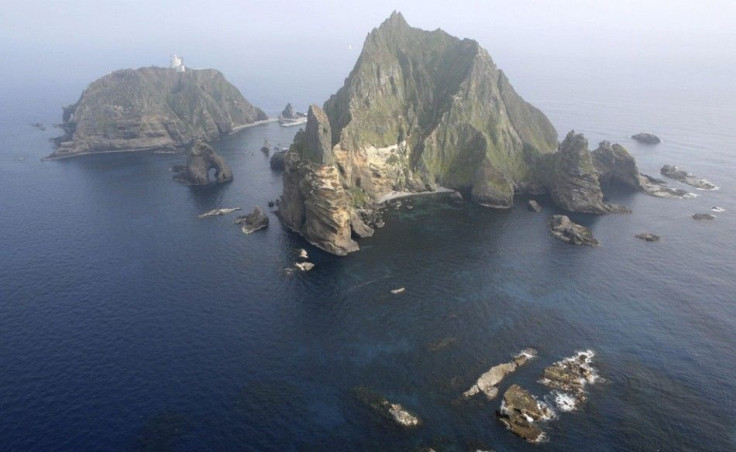Japan And South Korea Lock Horns Over Islands, China Steers Clear

This Friday, Japan recalled its ambassador to South Korea after South Korean President Lee Myung-Bak paid an official visit to a small group of islands located smack-dab in the middle of the Sea of Japan -- or the East Sea of Korea, as South Koreans call it.
Absent from this territorial dispute is China, which has been known, of late, to engage in naval disputes with neighbors over territory it claims as its own.
The islands, called the Dokdo Islands in Korean, the Takeshima Islands in Japanese and the Liancourt Rocks in English, have been part of a territorial dispute between South Korea and Japan since Korea gained its independence from Japan after World War II.
South Koreans are reportedly passionate about the issue and claim the islands have always been part of their motherland. The only current residents of the island are an old woman, her husband and the South Korean Coast Guard. But the islands are also home to an abundance of fish, in which Japan is extremely interested, and recently discovered reserves of natural gas, which could be worth billions of dollars.
Territorial disputes are common in this region, given the vast number of tiny islands, according to Harvard Professor of Japanese History David Howell. "These disputes are more visible now that China is exerting a naval influence," he said. "For most Japanese people, the status of some islands in the southern Okinawa is a much more powerful issue [than the Takeshima Islands]."
Howell said he'd be surprised if China got involved with these islands. China, after all, is busy disputing Ieodo Island with South Korea and a whole host of other islands between China and Taiwan, Vietnam, the Philippines and Japan. "
Howell also said China might be staying out of this spat strategically. "Getting involved one way or the other would highlight the ambiguity of these territorial claims in general," he said. "And that might undermine some of China's other claims to other islands."
But Howell also does not think things are likely to get too hot between Japan and South Korea. "Recalling the ambassador is not a big deal," he said. "In South Korea, this issue is a big deal, but from the Japanese side, they wouldn't want relations with South Korea to get sour over this."
© Copyright IBTimes 2025. All rights reserved.






















